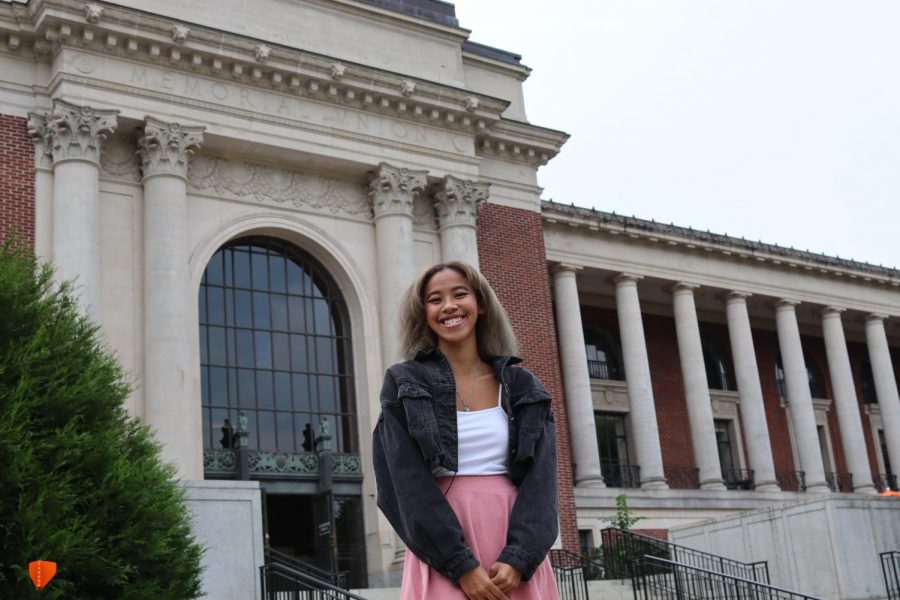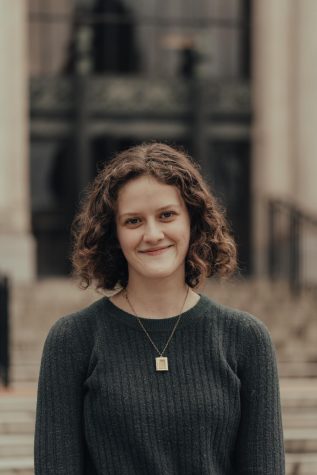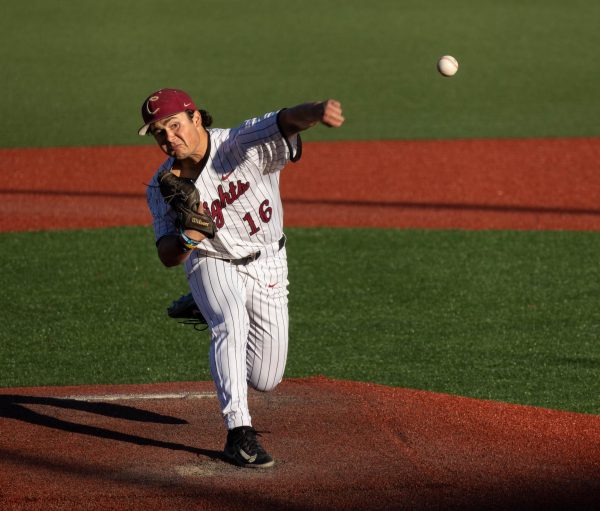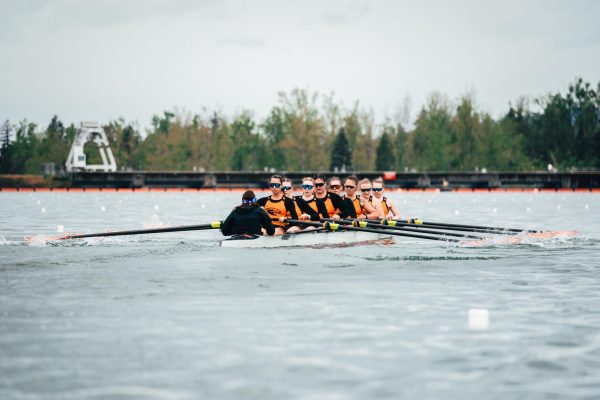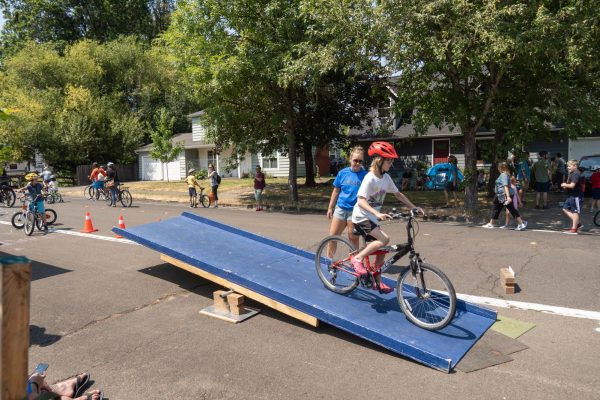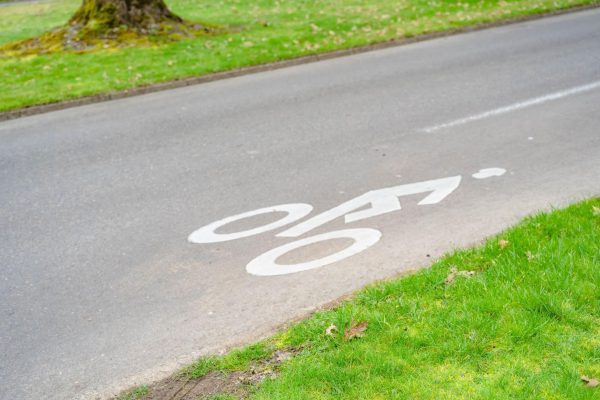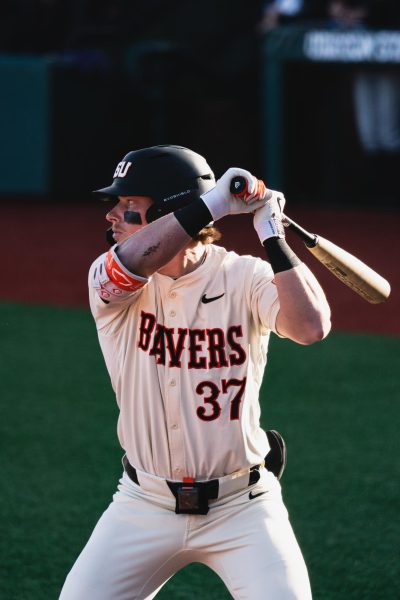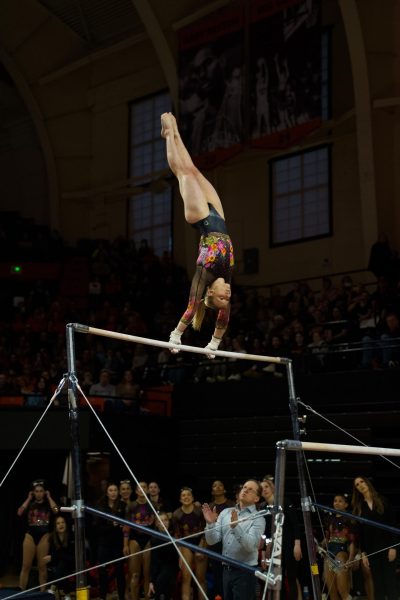OSU clubs transition back to in-person activities
Maija Linh Teona Pham, OSU PERIOD club president in front of the Memorial Union.
September 27, 2021
Associated Students of Oregon State University President Dhru Patel said one of the most difficult obstacles the pandemic created was disabling the club’s ability to provide in-person resources.
Examples include SafeRide, an ASOSU system that provides rides to students in Corvallis, Ore. and Student Legal Services, an ASOSU program that gives legal advice and representation to OSU students. SafeRide has been unable to operate during the pandemic, and Student Legal Services has had to conduct its services remotely.
“We’ve done a lot to be adaptable during the pandemic, and we’re looking forward to the in-person transition,” Patel said.
From student government to sports to social justice, OSU clubs have had to constantly adapt to the changes COVID-19 brought. Organizations like ASOSU are optimistic about returning to in-person, but now have new sets of obstacles to overcome.
Looking towards fall term, Patel said ASOSU’s executive branch will have all in-person programming. SafeRide and Student Legal Services will operate in a similar format, while ASOSU’s Congress will be more hybrid to be as accessible as possible to students.
“ASOSU is going to be operating in person, very consistent with the university’s fall term Pathway,” Patel explained. “However, we want to continue to remain adaptable so that we can remain an accessible organization to students that want to operate remotely as we go through this period of time.”
Though ASOSU is excited about returning to in-person activities, Patel said there are health and safety concerns. However, with health and safety protocol in mind, Patel is confident about the transition.
“I think just not being able to be on campus for the better part of two years — the transition back is going to be something where students have missed the campus culture, and ASOSU is going to try to help the transition go as smooth as it can be,” Patel said. “We’re also going to be an organization that provides programming so that students can enjoy their time on campus and be involved.”
OSU sports clubs have perhaps had the most difficult time adapting to the pandemic. Matthew Robinson, the external relations representative from Dodgeball Club, said COVID-19 made operating and recruiting for the organization complicated.
“We never really know what’s going to happen,” Robinson said. “Practice could get canceled at any moment based on whatever COVID-19 level we were at. And then recruiting was difficult, because not a lot of people were on campus.”
During the pandemic, the Dodgeball Club practiced in fall term of 2020 and spring term of 2021, however, they were unable to meet during the entire winter term due to COVID-19.
This fall, Robinson said the club will be in-person, and this time, members will be participating in events like OSU Rec Night and the Beaver Community Fair, which they were unable to do during the pandemic.
Though practices will be in person, Robinson said masks will be required and health screenings will take place. Dodgeball Club is also unsure whether OSU will allow them to participate in tournaments as they have in years prior.
Unlike ASOSU and the Dodgeball Club, OSU’s PERIOD chapter has never been in person. According to the club’s president, Maija Pham, the club was formed during the pandemic in the fall of 2020.
OSU’s PERIOD club is a branch of a national organization that seeks to end period poverty and period stigma via advocacy, education and service. Pham said setting up a social justice organization wasn’t easy during the pandemic.
However, though they were unable to table, recruit or talk to people in person about their club, Pham said she thinks they managed well.
“We were able to have a steady foundation for members and still have educational events,” Pham said.
This fall, the PERIOD club plans to host bi-weekly meetings, have service and educational events and perform outreach in-person. Pham said though she’s nervous about what in-person operation will be like, she’s confident the transition will benefit the organization.
“Being in person where people want to be in person—our people are very excited to be involved and be a part of some sort of organiza- tion and find that belonging,” Pham said. “I’m confident in that.”












































































































